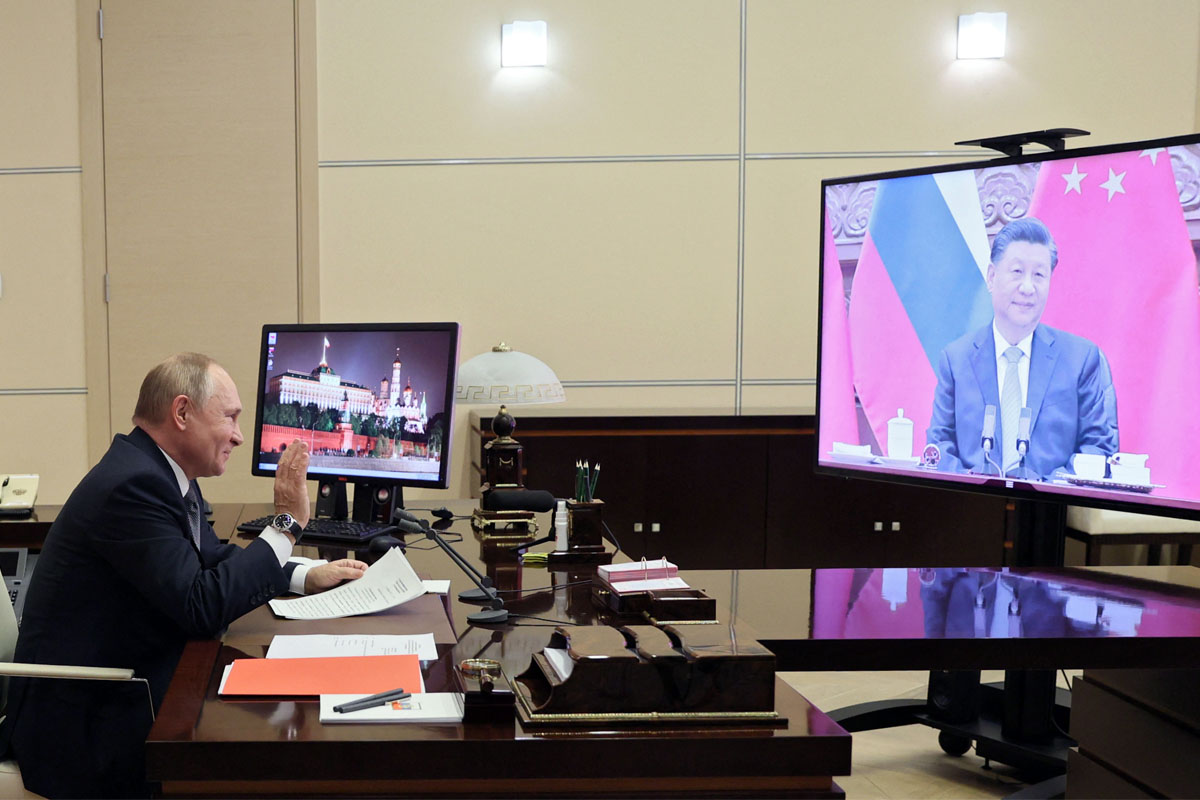Joe Biden, preparing for negotiations with Vladimir Putin, tends to seek the support of the Allies, strengthening his positions and adding confidence. The Russian president also applies an akin tactic. Before he negotiated with the American leader, Putin met with Indian Prime Minister Narendra Modi in New Delhi. And shortly after the virtual summit with Biden, he held talks with Chinese President Xi Jinping, which, according to Xi, was their 37th meeting since 2013.
37th meeting of the Chinese and Russian presidents counterweighted the Global Democracy Summit, initiated by the United States. China and Russia seem to have serious intentions to use the advantages that give them the right to determine what is "good" and "bad" in world politics. At the meeting, it was said that only the people of the states concerned have the right to judge the quality of their democracies. According to them, using the values of democracy and human rights, "certain international forces" simply interfere in the internal affairs of China and Russia. Beijing and Moscow no longer talk about close cooperation alone but shape an ideological alternative to the Western version of the world order.
The war of threats at the global level continues, and there is room for the mutual interests of China and Russia.
Moscow threatens to attack Ukraine. The West responds to the threat with new sanctions, threatening that Russia would pay an ‘extremely high price’. Will pay in case of further aggression. Russia and China threaten to create an independent financial infrastructure that will make Moscow and Beijing less vulnerable to Western sanctions - both now and in the future. The West is testing new alliances and deterrence formats for China and Russia, while Moscow and Beijing are approaching and hinting at the possible involvement of India in their dialogue. It was Russia and China that were the two states that used the words about multipolarity in official rhetoric: today, perhaps, we are already living in this era. The struggle for the allies is unfolding with renewed vigor. And although we can't count on traditional U.S. allies - Beijing may well compete for the countries that have not to pick a side yet, and Russia will help. In the meantime, the parties have started with a negative assessment of new military alliances, such as AUKUS and Quad.
China will look for opportunities for further economic expansion, the inclusion of new countries in its sphere of economic influence, reduction of dependence on the United States, where, Russia may well be a useful partner; especially since there are no acute contradictions in relations between the two countries, and their bilateral trade is growing rapidly, as was mentioned by the Russian president. The economies of the two countries complement each other well.
There are also some other factors, which bring together the two states. Both China and Russia do not want diplomatic isolation, which works against their interests, reducing opportunities. For China, this issue is especially relevant on the eve of the Beijing Olympics, which has already been declared a diplomatic boycott by several Western countries. Demonstrative support from Russia on this issue is important for Beijing. Moscow, in turn, participates in such meetings to show off itself as a full-fledged player in the modern international arena, which should and will be reckoned with, as well as with its interpretation of its national safety.
Xi Jinping expressed the understanding of Russia's concerns and support for Moscow's demands to receive security guarantees from the West. Chinese policy towards Russia, in general, is largely based on the rhetoric of understanding Russia’s concerns. Russia needs to demonstrate mutual understanding and cooperation with China, as well as the fact that their collaboration can become even deeper. This prospect will have to be taken seriously in Washington.
Russia and China are not formally allies. But according to estimates, the current state of relations between two great powers is perceived as more than an alliance - due to the proximity and effectiveness of their relations. "More than an alliance" is, of course, a metaphor.
In times of crisis, "intimacy" will mean less than formalized obligations. But the task for both Moscow and Beijing shortly will be to avoid such crisis moments; use each other's potential in negotiations with third parties; and make time work in their interests, not against them.


